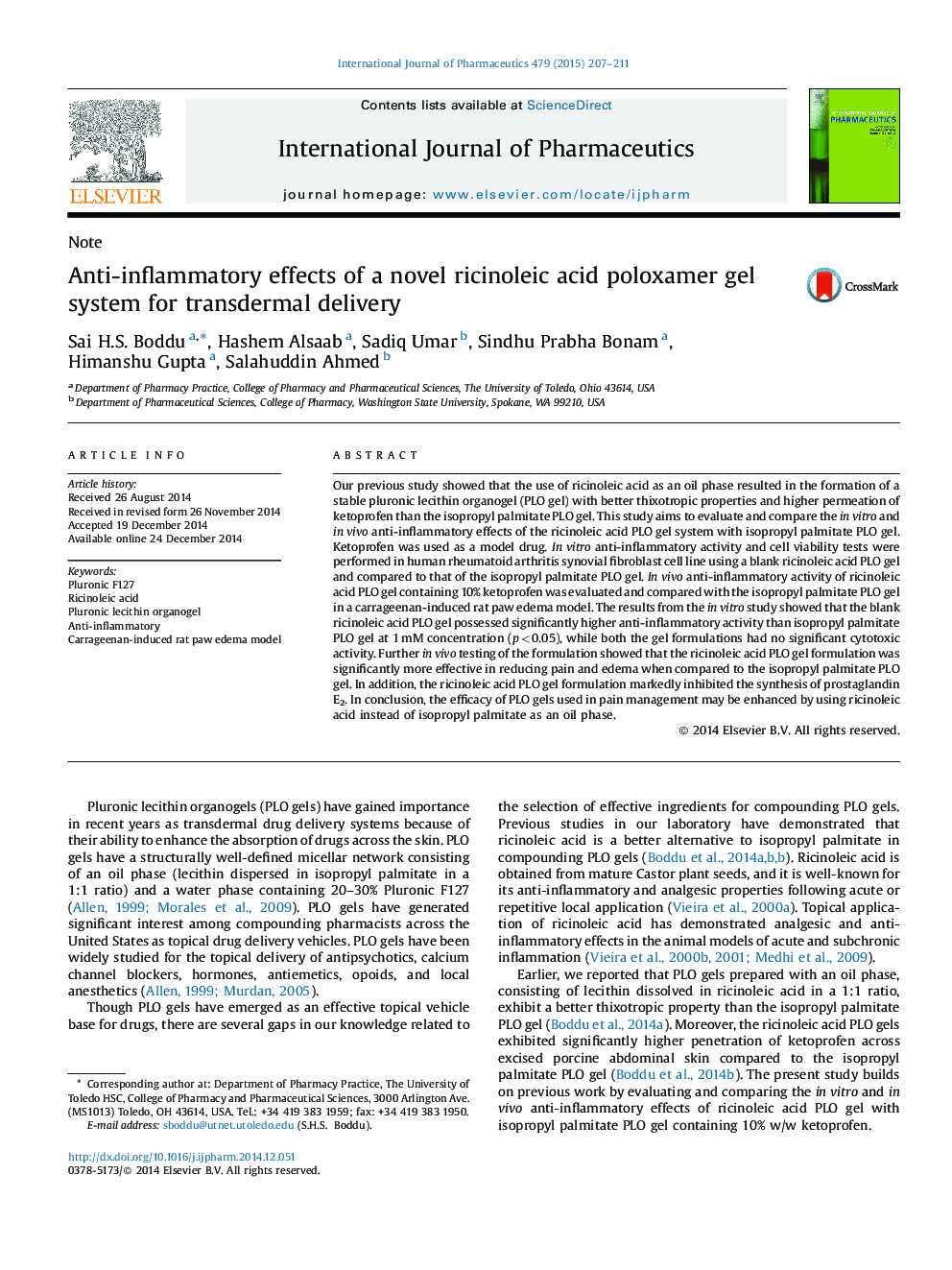| Article ID | Journal | Published Year | Pages | File Type |
|---|---|---|---|---|
| 2501567 | International Journal of Pharmaceutics | 2015 | 5 Pages |
Our previous study showed that the use of ricinoleic acid as an oil phase resulted in the formation of a stable pluronic lecithin organogel (PLO gel) with better thixotropic properties and higher permeation of ketoprofen than the isopropyl palmitate PLO gel. This study aims to evaluate and compare the in vitro and in vivo anti-inflammatory effects of the ricinoleic acid PLO gel system with isopropyl palmitate PLO gel. Ketoprofen was used as a model drug. In vitro anti-inflammatory activity and cell viability tests were performed in human rheumatoid arthritis synovial fibroblast cell line using a blank ricinoleic acid PLO gel and compared to that of the isopropyl palmitate PLO gel. In vivo anti-inflammatory activity of ricinoleic acid PLO gel containing 10% ketoprofen was evaluated and compared with the isopropyl palmitate PLO gel in a carrageenan-induced rat paw edema model. The results from the in vitro study showed that the blank ricinoleic acid PLO gel possessed significantly higher anti-inflammatory activity than isopropyl palmitate PLO gel at 1 mM concentration (p < 0.05), while both the gel formulations had no significant cytotoxic activity. Further in vivo testing of the formulation showed that the ricinoleic acid PLO gel formulation was significantly more effective in reducing pain and edema when compared to the isopropyl palmitate PLO gel. In addition, the ricinoleic acid PLO gel formulation markedly inhibited the synthesis of prostaglandin E2. In conclusion, the efficacy of PLO gels used in pain management may be enhanced by using ricinoleic acid instead of isopropyl palmitate as an oil phase.
Graphical abstractFigure optionsDownload full-size imageDownload high-quality image (277 K)Download as PowerPoint slide
